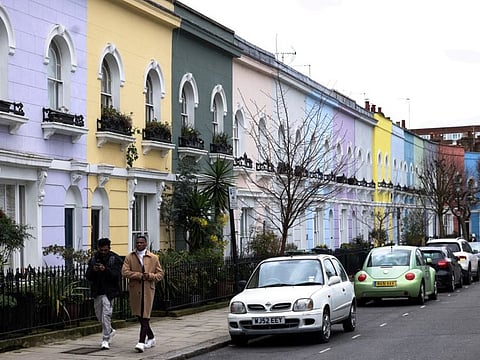UK’s wealthy parents give kids a 10 year head start in housing
Many first-time buyers have been priced out of the market by worsening affordability

London: Britain’s wealthy parents are passing onto their children a 10-year advantage in buying property, research from the Bank of England showed, adding to concerns about “inheritocracy” in the bid for people to own a home.
The central bank found that deposits are two and a half times bigger, loans are 30 per cent smaller, and the properties cost 15,000 pounds ($19,264) more when younger buyers get help from “the Bank of Mum and Dad” to grab a rung on the property ladder.
It takes those without support 10 years longer to buy a property for the same sum snapped up by a 26-year-old with parental help, the research found.
The findings add to evidence about widening wealth inequality in the UK, with eye-watering house prices leaving many of those from poorer backgrounds struggling to move beyond rented accommodation into ownership. Many first-time buyers have been priced out of the market by worsening affordability, leaving the best opportunities to buy to those who inherit wealth.
“The average 26 year old with help paid about 254,000 pounds for their first home,” May Rostrom, who works in the BOE’s Monetary Policy Outlook Division, said in a Bank Underground blog post. “Those with no help waited a decade - until they were 37 - to buy a property for an equivalent sum.”
Those with financial support bought their first homes at 26, four year earlier than those without help, the research showed.
She concluded that the support is “substantial” and that receiving gifts to buy property is common, affecting 10 per cent of first-time buyers aged under 45 and 28 per cent of those under 25. The research adds to evidence that receiving help “can affect your entire homeownership trajectory,” Rostrom added.
Affordability for first-time buyers has been worsened by soaring mortgage rates and higher house prices.
English employees can expect to spend 8.3 times their annual earnings to buy a home with the affordability ratio more than doubling since 1997, according to the Office for National Statistics.
Strains are worst in the capital. It is more difficult to buy a house in the most affordable part of London than in the least affordable area in the North East of England.
Sign up for the Daily Briefing
Get the latest news and updates straight to your inbox



